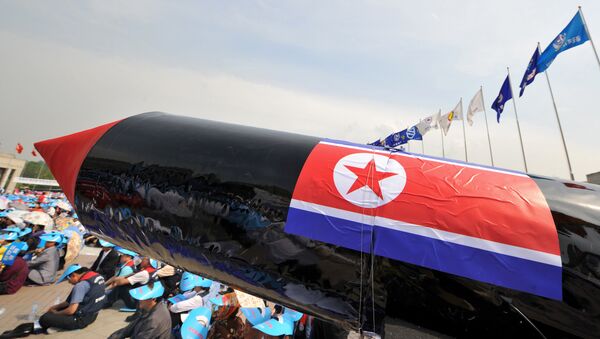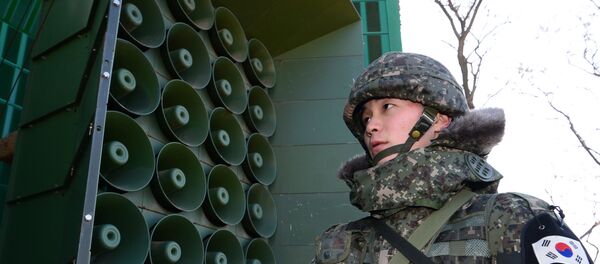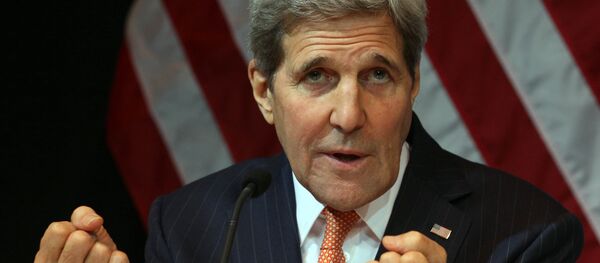"In 1994 there was an agreement signed between the United States and the DPRK," activist Sarah Sloan tells Loud & Clear host Brian Becker. "They [North Korea] agreed to suspend their nuclear weapons program, and they did at that time.
"But they were supposed to get things in this agreement in exchange."
This included a whitewater nuclear reactor, built by the West, to meet the country’s energy needs, as well as heavy fuel products. But this agreement was scrapped when George W. Bush came into office.
"He made that clear within the first few months of his administration, and he went even further by declaring the DPRK to be part of the 'Axis of Evil' along with Iraq and Iran," Sloan says. "North Korea saw what happened then, that the US invaded Iraq. They overthrew their government and completely destroyed and occupied the country."
Against this backdrop, Pyongyang’s recent testing of a nuclear weapon makes sense.
"When the US carries out military exercises that actually simulate war, simulate the invasion and destruction of North Korea, a country that just over 60 years ago suffered the loss of millions of people…they consider that to be a very real threat."
Recently, the US State Department claimed that peace talks between Washington and Pyongyang fell apart because North Korea refused to consider denuclearization a part of that agreement.
"For the United States to be making these demands is extremely hypocritical given their huge arsenal of nuclear weapons," Sloan says. "It would seem that for any smaller country being threatened by such a large country with such a huge, powerful military as the United States, logically they would not want to give up their nuclear weapons."
"I think it’s clear to North Korea that all they can do is remain as strong as possible to attempt to withstand the threat of the United States," she adds. "Giving up their nuclear weapons will only mean their destruction…"
While many Western citizens have a negative view of Pyongyang, that’s largely because North Korea has been vilified by the US.
"It’s difficult to break through the government and media demonization campaign that exists in this country, and really throughout the whole capitalist world," Sloan says.
She hopes that increased travel to North Korea can help break down these misunderstandings.
"We’ve supported the work of the Korea Peace Tours, which is helping to bring US peace activists…to the DPRK," she says. "People who went have been able to come back and speak about their trip and show pictures and video to show people what it’s really like."




